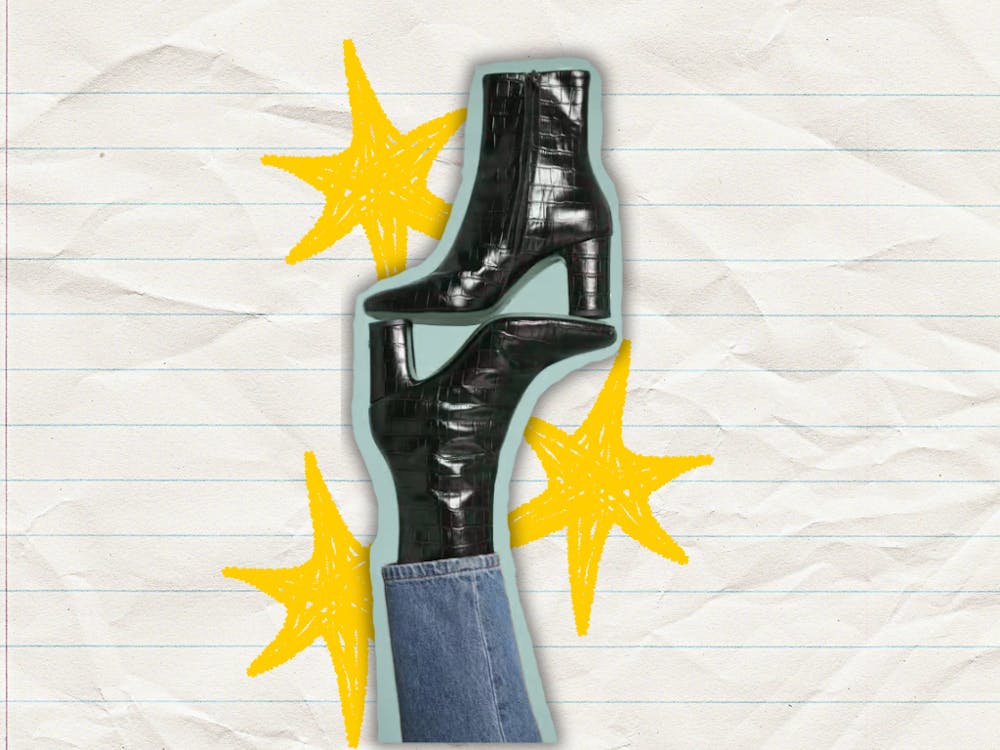Imagine the perfect white t-shirt. Or better yet, Google it. Click on the first shopping link and you’ll likely be taken to a gorgeous website. Maybe it’s for a brand like Everlane, or Aritzia or Madewell. Scroll down the product pages and feel soothed (maybe even sedated) by the minimal, pastel-toned design and the gentle sans-serif typeface.
Ah yes, these are clothes. They don’t look like fast fashion (no obvious trendiness, yet highly Instagramable), or high fashion (not at all interesting, yet still inexplicably pricey). They’re plain … but in a sexy way? They do look incredibly easy to style; it seems like everything here could match with everything else here. And you, a good conscious fashion consumer, can tell the clothes are super sustainable because a corporate statement of “environmental responsibility” is always just one click away.
The items themselves are probably referred to as proper nouns. This isn’t just a “white t-shirt,” after all, this is “The White T-Shirt.” It’s almost as if the brand claims to have invented t-shirts themselves, after conducting extensive user interviews, identifying the most significant customer pain points and carefully crafting research-based buyer personas for each key demographic of their core user base (is this a clothing brand or a tech startup?).
Return to the Google search results. Scroll and you’ll find oodles of articles with titles like “The 25 Best White T-Shirts For Women in 2022.” Click on one and marvel at how many different Best White T-Shirts there are to choose from. Woah, this one is ivory. Ooh, this one is alabaster. Ahh, this one is egret.
Welcome to the palliative hellscape of elevated basics. Here, clothing seems to be algorithmically designed to be as “essential” as possible. These are the often blogged-about “wardrobe staples that everyone needs.” These clothes were not designed for people with hobbies, or friends or taste. These clothes were designed for people who “needed a nice pair of slacks for the office,” or “were in the market for a new lightweight jacket.”
These brands sell clothing in a way that encourages us to think about fashion in a really sad and joyless way. There is nothing wrong with having a nice pair of slacks to wear at the office, but who told you that you needed them in the first place? Why is the brand trying so hard to convince you that these pants really are “essential?” It’s as if fashion is no longer a playground of self-expression, but a risk to be mitigated.
The clothes seem to shout from the rooftops: “look at how practical I am!” Words like “everyday” and “timeless” get thrown around a lot. Aritzia has a product called the “Effortless Pant” (I’d like to know who decided that effort is a bad thing.)
It should be made clear that this is not an argument against pragmatism in fashion. Clothes designed for specific purposes — mountaineering boots, carpenter pants, wedding dresses — are beautiful because of that very fact. They are not, like so many elevated basics are, desperate for a reason to exist.
In other words, if the clothes really were functional, if they really served any purpose or brought us any joy, they wouldn’t have to insist upon it so much. As customers, we often become so convinced that we need the item that we fail to consider if we ever actually wanted it in the first place.
The garments themselves are often so quintessentially non-offensive (a.k.a. boring) that there is no room left for creativity or drama. Instead, in exchange for our individuality, these brands promise us access to a trendless safe haven, a place where we no longer have to worry about whether or not we look fashionable, because we at least will always look … totally normal.
But we won’t get to that place by buying elevated basics. These brands are driven by the same disposable trendiness that drives fast fashion, only this time it’s masked under the sneaky disguise of perceived utility, cushioning us from feeling superficial for loving clothes.
But why shouldn’t we love our clothes? And why shouldn't our clothes be loveable, not just practical? Isn’t that the most sustainable way to dress anyway: only buy it if you absolutely love it?




